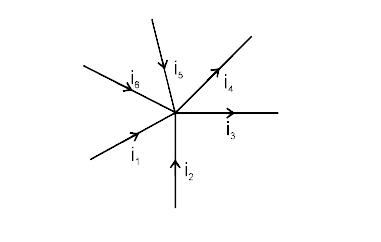In=∫π/2π/4Cotnx⋅dx Find relation between I2+I4,I3+I5,I4+I6,
A.P
G.P
Reciprocals are in A.P
None of these
To solve the problem, we need to find the relationship between I2+I4, I3+I5, and I4+I6 where In=∫π2π4cotnxdx.
Step 1: Write the expression for In
We have:
In=∫π2π4cotnxdx
Step 2: Use the property of integration
We can derive a relationship between In, In+2, and In−2 by adding In and In+2:
In+In+2=∫π2π4(cotnx+cotn+2x)dx
Step 3: Factor out cotnx
We can factor cotnx out of the integral:
In+In+2=∫π2π4cotnx(1+cot2x)dx
Step 4: Use the identity 1+cot2x=csc2x
Using the identity 1+cot2x=csc2x, we have:
In+In+2=∫π2π4cotnxcsc2xdx
Step 5: Change of variables
Let t=cotx, then dt=−csc2xdx. Changing the limits:
- When x=π4, t=1
- When x=π2, t=0
Thus, we can rewrite the integral:
In+In+2=−∫01tn(−dt)=∫10tndt
Step 6: Evaluate the integral
The integral ∫10tndt evaluates to:
∫10tndt=1n+1
Step 7: Final relationship
Thus, we have:
In+In+2=1n+1
Step 8: Finding specific relationships
Now we can find the specific relationships:
1. For n=2:
I2+I4=13
2. For n=3:
I3+I5=14
3. For n=4:
I4+I6=15
Conclusion
We can summarize the relationships:
- I2+I4=13
- I3+I5=14
- I4+I6=15
We have:
In=∫π2π4cotnxdx
We can derive a relationship between In, In+2, and In−2 by adding In and In+2:
In+In+2=∫π2π4(cotnx+cotn+2x)dx
We can factor cotnx out of the integral:
In+In+2=∫π2π4cotnx(1+cot2x)dx
Using the identity 1+cot2x=csc2x, we have:
In+In+2=∫π2π4cotnxcsc2xdx
Let t=cotx, then dt=−csc2xdx. Changing the limits:
- When x=π4, t=1
- When x=π2, t=0
In+In+2=−∫01tn(−dt)=∫10tndt
The integral ∫10tndt evaluates to:
∫10tndt=1n+1
Thus, we have:
In+In+2=1n+1
Now we can find the specific relationships:
1. For n=2:
I2+I4=13
2. For n=3:
I3+I5=14
3. For n=4:
I4+I6=15
We can summarize the relationships:
- I2+I4=13
- I3+I5=14
- I4+I6=15
Similar Questions
Knowledge Check
- Question 1 - Select One
In=∫π2π4(cotnx)dx , then :
A1I2+I4,1I3+I5,1I4+I6 are in G.P.BI2+I4,I3+I5,I4+I6 are in A.P.CI2+I4,(I3+I5)2,I4+I6 are in G.P.D1I2+I4,1I3+I5,1I4+I6 are in A.P. - Question 2 - Select One
Let I=∫π/3π/4sinxxdx. Then
A12≤I≤1B4≤I≤2√30C√38≤I≤√26D1≤I≤2√3√2 - Question 3 - Select One
If ln=∫π/40tannxdx,n∈NthenIn+2+In equals
A1nB1n−1C1n+1D1n+2
For a positive integer n, let In=∫π−π(π2−|x|)cosnxdx
Find the value of [I1+I3+I4] (where [.] denotes greatest integer function) .View SolutionIf In=∫π40tannxdx then I2+I4,I3+I5,I4+I6...... are in
View SolutionIf In=∫π/40tannxdx, then
1I2+I4,1I3+I5,1I4+I6,... from\View SolutionIf In=∫π/40tannxdx, where n≥2, then : In−2+In=
View SolutionIf In=∫π/40tannxsec2x dx, then I1,I2,I3,…. are in
View Solution


